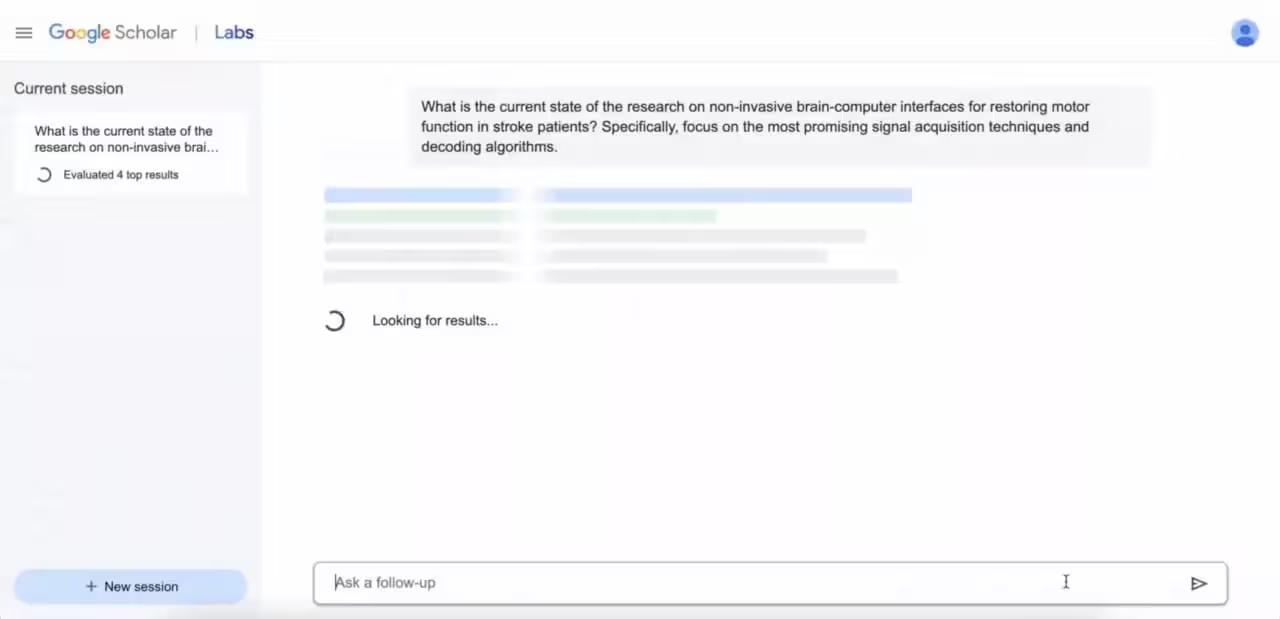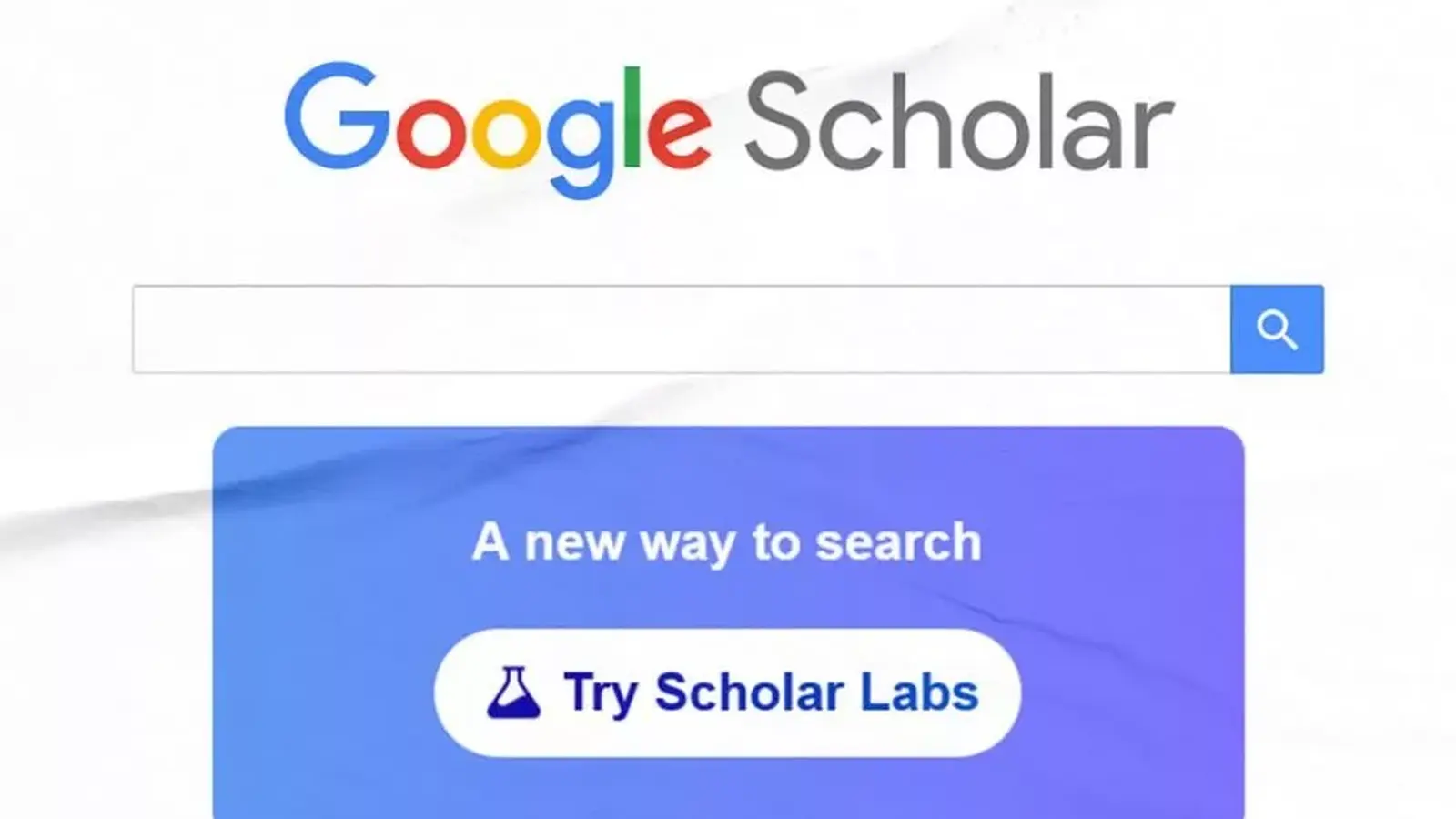3 Minutes
Google has quietly launched Scholar Labs, an experimental AI-driven search tool designed to help researchers and curious readers find the most relevant scientific papers. Currently rolling out to a limited group of users via a waitlist, the feature aims to bring research discovery closer to natural language queries.
AI that reads and ranks research
Scholar Labs uses artificial intelligence to identify the main topic behind a user's query and surface papers that directly address it. Instead of returning a list of links, the tool highlights a top result and explains why that paper was selected — a helpful touch for anyone trying to judge relevance quickly.
In a demonstration cited by The Verge, Scholar Labs answered a question about brain-computer interfaces (BCI) by highlighting a 2024 article from Applied Sciences as its primary result and summarizing the rationale for that choice. That kind of contextual guidance can save time when wading through dense academic literature.
Filters for credibility: citations and impact factor
One of Scholar Labs' notable features is its set of filters designed to separate stronger studies from weaker ones. The system weighs factors such as the number of citations a paper has received and the impact factor of the publishing journal.

Impact factor — a common, if imperfect, proxy for journal reputation — is used to indicate how often articles in a journal are cited. For example, Applied Sciences has an impact factor of about 2.5, whereas Nature sits much higher at roughly 48.5. Those numbers give readers quick signals about how a paper might be viewed within the scientific community.
Control over recency and scope
Google says Scholar Labs is designed to "find the most useful papers for a user's research query." Users can also ask the tool to prioritize newer studies or limit results to a specific time range, a useful option when staying on top of rapidly evolving fields.
A Google spokesperson, Lisa Ogioku, noted that Scholar Labs represents "a new orientation" for the company and that user feedback will shape the feature as it evolves. Access is currently gated behind a waitlist as Google collects input and refines the experience.
Why this matters for researchers and readers
Imagine typing a nuanced question and getting not just links, but an annotated recommendation pointing to the best-fit study and explaining why it was chosen. That’s the promise Scholar Labs offers: faster triage of literature and clearer signals about credibility — though expert judgment will still be essential.
For academics, students, and industry pros who constantly sift through papers, AI-assisted ranking and transparent explanations could reduce noise and accelerate discovery. Keep an eye on the waitlist if you want early access; Google is clearly treating Scholar Labs as a testing ground for smarter, more helpful research search tools.


Leave a Comment